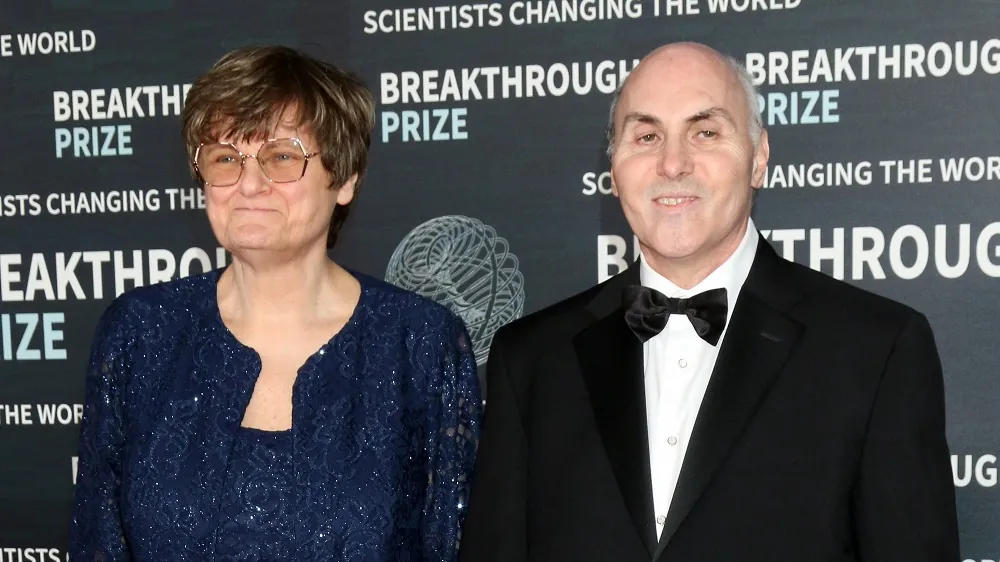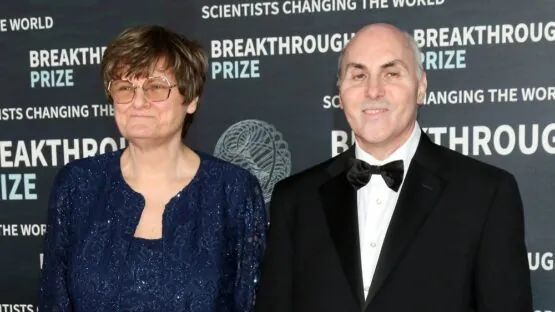Katalin Karikó and Drew Weissman received this year’s Nobel Prize in Physiology or Medicine for a groundbreaking discovery that facilitated the development of mRNA vaccines and can be relevant to future anti-aging therapies.
A crucial discovery
The COVID-19 pandemic was one of the biggest health challenges that humanity has ever seen. At its dawn, things looked grim: the virus was clearly both highly contagious and lethal: a combination worthy of a horror movie. Healthcare workers fought back bravely, and many of them succumbed to the disease themselves, but their efforts were hampered by insufficient knowledge about the virus’ behavior and the lack of good therapeutic and preventive care.
While the COVID-19 pandemic led to a staggering loss of life, the death toll could have been many times higher if not for advances in science and manufacturing. Researchers, pharma companies, and regulators truly outdid themselves by putting out effective vaccines in just one year. Of the discoveries that made this possible, probably the most important one is owed to the biochemist Katalin Karikó and immunologist Drew Weissman, who two days ago received the Nobel Prize in Physiology or Medicine.
Modified nucleosides fool the immune system
The general idea behind vaccines is to make the immune system familiar with the pathogen, such as a virus, before the actual infection happens. Traditional vaccines use deactivated pathogens to do so. However, it is enough to “feed” to the immune system a single protein from the pathogen. Those proteins can be produced by the cell’s own machinery, but it needs instructions in the form of DNA or mRNA (messenger RNA).
The problem is that the human body has mechanisms that recognize foreign genetic material and degrade it, which is why the idea of mRNA vaccines was long considered untenable. Karikó and Weissman’s fundamental research during the 2000s, when they both worked at the University of Pennsylvania, was aimed at elucidating and circumventing those defense mechanisms.
The two discovered that our immune system is less responsive to mammalian than to viral RNA because the former is abundant in modified nucleosides; for instance, the nucleoside uridine is often replaced by a slightly different molecule called pseudouridine [1]. Interestingly, their first paper on the subject was rejected by both Nature and Science and eventually published in the journal Immunity.
This discovery opened the door to cheap and effective vaccines based on pseudouridine-containing mRNA. Two such vaccines, produced by Moderna and Pfizer, spearheaded the world’s anti-COVID effort. The importance of pseudouridine is illustrated by the fact that the third mRNA vaccine, produced by the German company CureVac using unmodified RNA, was a major letdown [2].
To be clear, COVID-19 vaccines come in all shapes and sizes. Some are old-school, based on deactivated viruses, while others use viral vectors (mostly adenoviruses) to deliver viral DNA to the cells. However, mRNA vaccines offer several clear advantages, such as the ease of design and manufacturing.
Another essential component of mRNA vaccines is lipid nanoparticles (LNPs), which enclose the mRNA molecules. The creation of mRNA vaccines would not be possible without recent advances in the LNP field. Some people in the scientific community have argued that the researchers involved in the development of LNP technologies are not less worthy of the Nobel Prize, but this was more of a collective effort.
The anti-aging connection
Just how relevant are mRNA vaccines and this Nobel Prize to the field of anti-aging research? Gene therapies are considered one of the most promising avenues in geroscience. Some experts, such as Harvard professor George Church, argue that they are indispensable if we want to achieve meaningful life extension.
Many age-related diseases are caused by diminished production of certain proteins, which can theoretically be fixed by mRNA delivery. It is also possible to instruct human cells to produce proteins that are normally found in long-lived species, such as the bowhead whale’s extremely effective version of SIRT6 [3].
“The ability to deliver mRNA of interest into cells in vivo and circumvent the immune system is important well beyond its application in COVID vaccines,” explains another Harvard professor and renowned geroscientist, Vadim Gladyshev. “While it is early to predict how it will play out in the aging field, further advances in mRNA delivery involving multiple genes to sites of interest may allow to target aging and perhaps partially reverse it under some circumstances.”
Literature
[1] Karikó, K., Buckstein, M., Ni, H., & Weissman, D. (2005). Suppression of RNA recognition by Toll-like receptors: the impact of nucleoside modification and the evolutionary origin of RNA. Immunity, 23(2), 165-175.
[2] Dolgin, E. (2021). Covid vaccine Flop Spotlights Mrna Design Challenges. Nature, 594, 483-483.
[3] Firsanov, D., Zacher, M., Tian, X., Zhao, Y., George, J. C., Sformo, T. L., … & Gorbunova, V. (2023). DNA repair and anti-cancer mechanisms in the longest-living mammal: the bowhead whale. BioRxiv, 2023-05.





